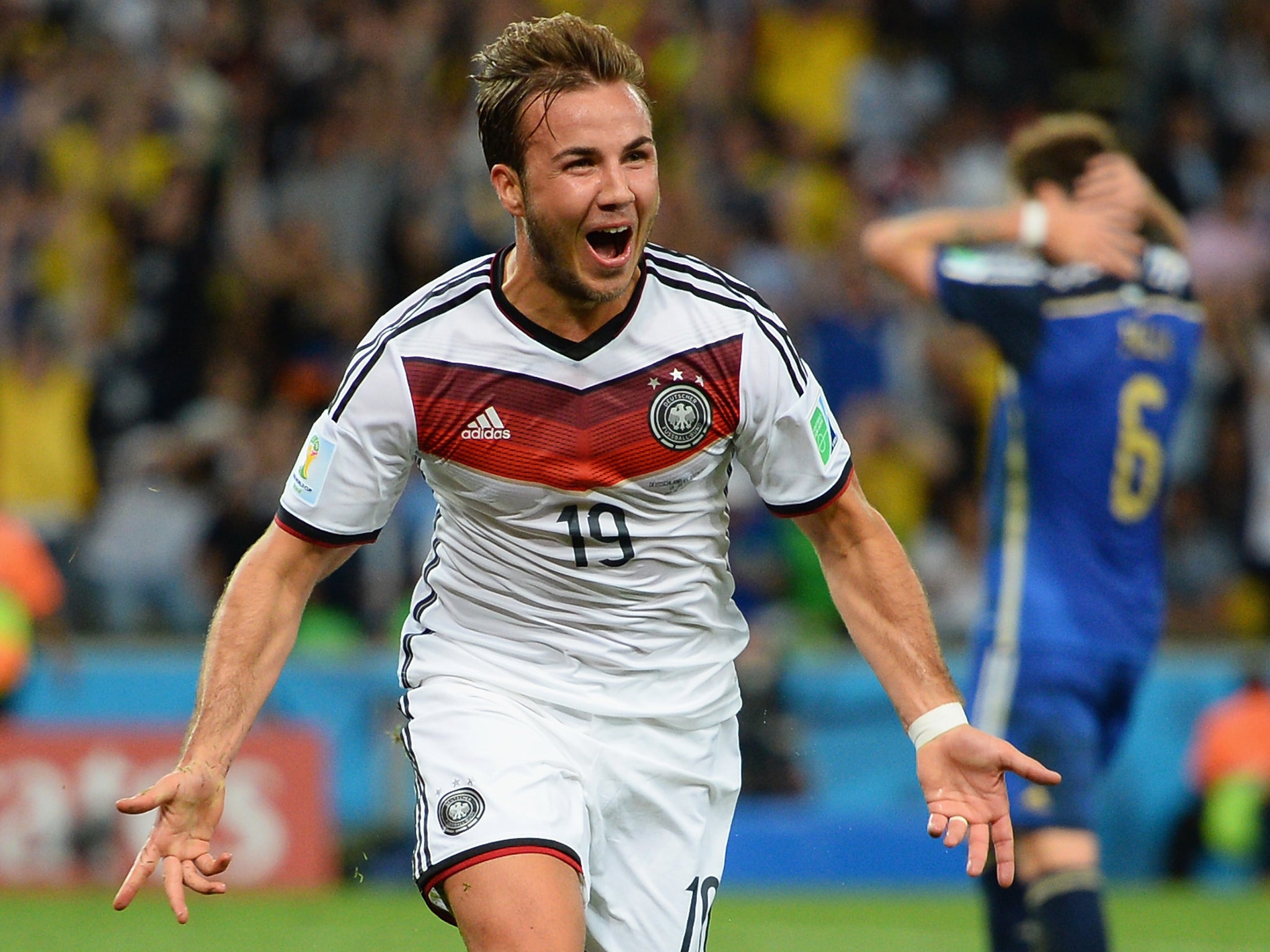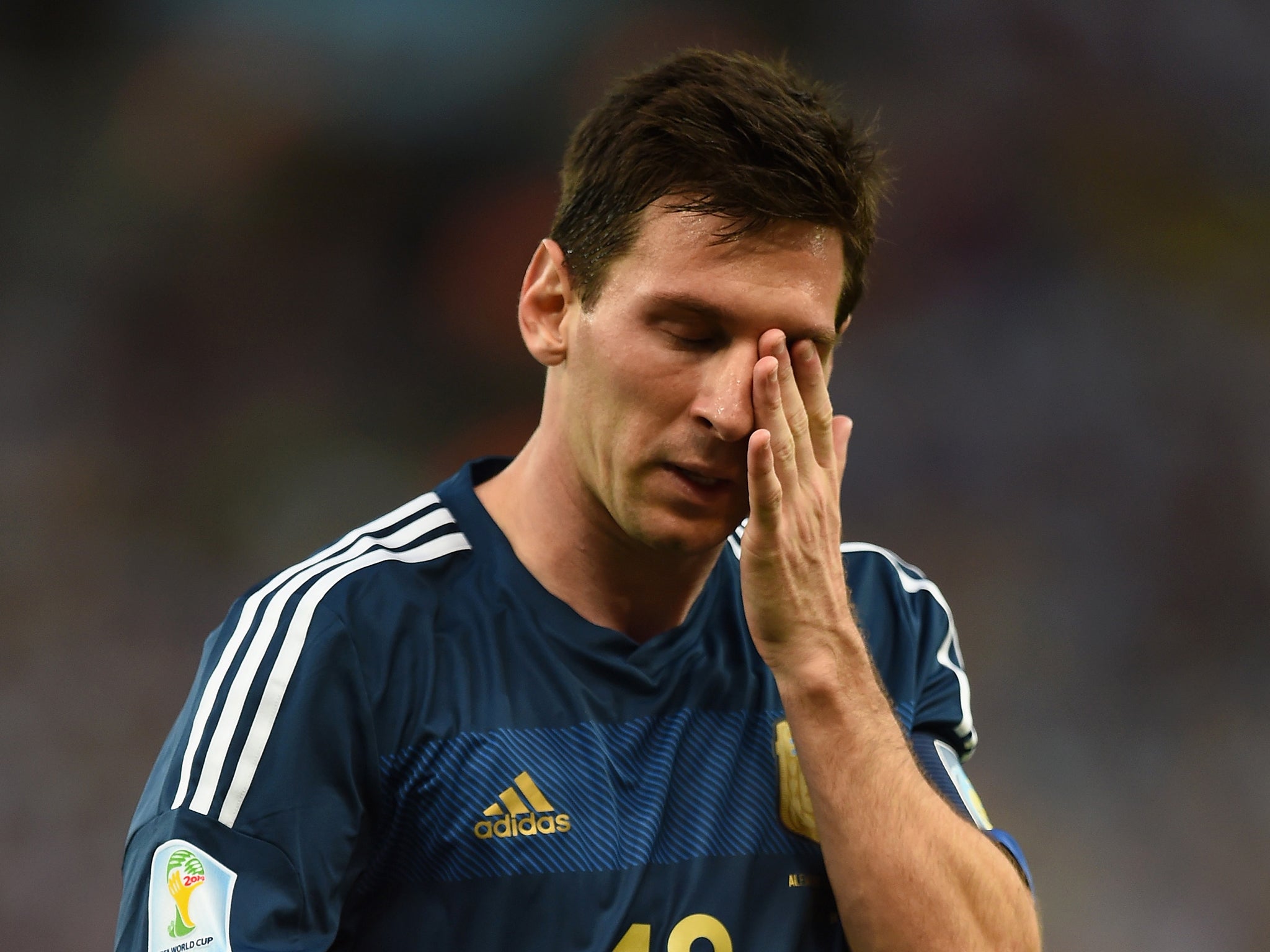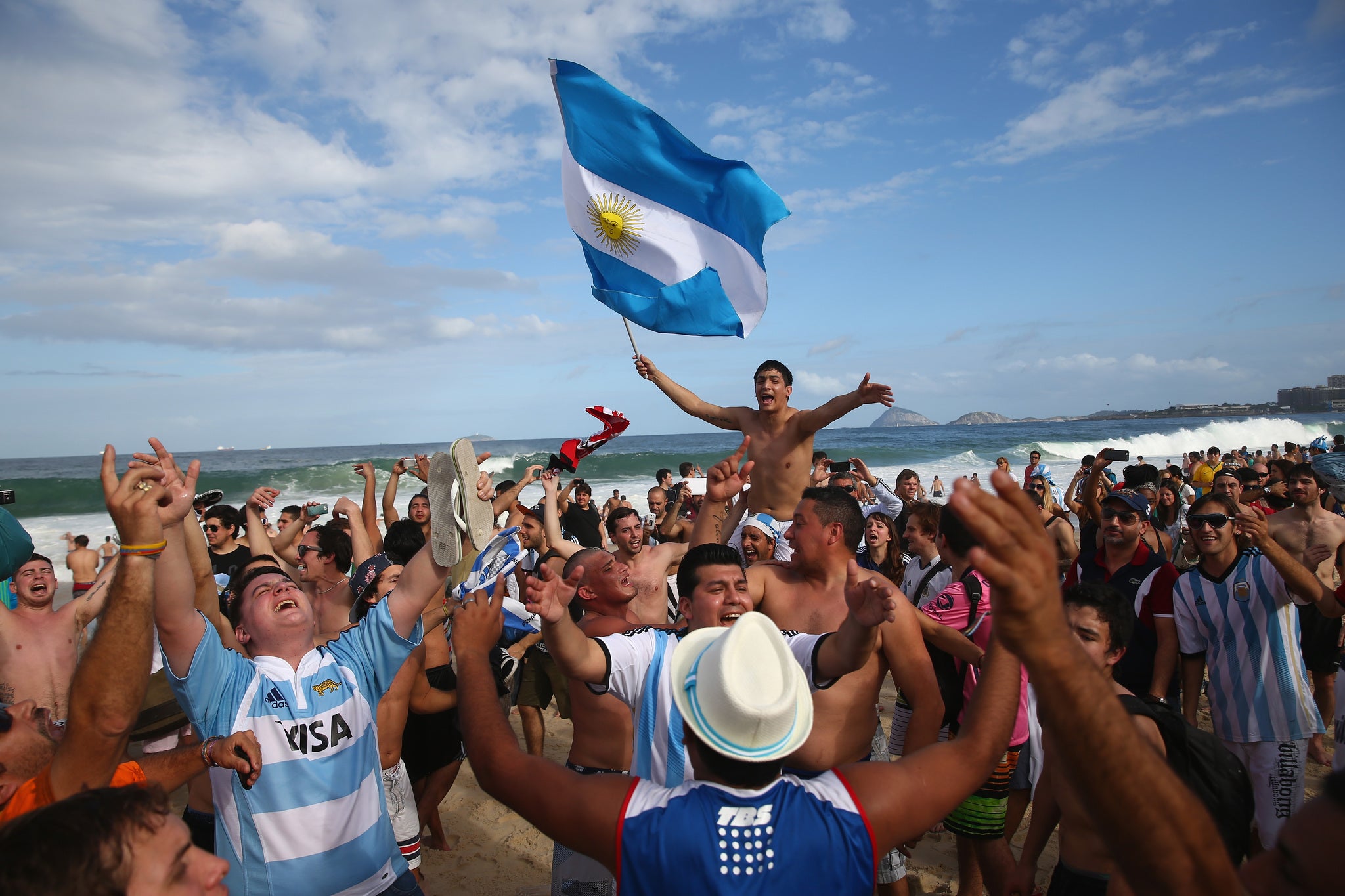World Cup 2014: It’s carnival time for Germany in Rio

Germany erupted in joy last night as its team made footballing history by becoming the first European side to win the World Cup in South America.
The Brandenburg gate in Berlin, where fans had gathered in their thousands, was the scene of the biggest celebration as Mario Götze broke the deadlock deep into extra time to secure a 1-0 win.
There were only a few Germans in Rio de Janeiro compared to the legions of Argentinians, and their faces were masks of steely determination for much of the match. But those grim expressions and those of the hordes in Berlin were transformed as Germany secured their fourth world title after a 24-year wait.
In the Maracana stadium, the Argentina fans were gracious in defeat, applauding the German team after the final whistle.
In contrast to the jubilation in Berlin, there was dismay on Copacabana beach, which had been turned into a little piece of Argentina for the evening by some 70,000 fans dressed in sky blue and white as they watched big screens.
Hours before, it had all been so different as their fans rocked the metro trains that rattled underneath the length of Rio’s beaches and rolled into the Maracana, fresh legions flooding on to each train at every stop, and noisily joining in the chorus of the moment, banging on seats, the windows, the floo.
“A Messi lo vas a ver / La copa nos va a traer / Maradona es mas grande que Pele,” they sang confidently. “You will see / Messi will bring us the cup / and Maradona was better than Pele.”
Two popes, a concrete Christ and a football god. It should have had it all. But in the great cathedral of the Maracana, the game’s higher power on earth couldn’t quite manage finally to beatify himself.
That honour fell to Mario Gotze, who at the age of 22, has done that unsurpassably magic thing. To score the winning goal in the World Cup Final.
As it was in Rome in 1990, Germany beat Argentina 1-0, and the game’s great player, Maradona then, Messi now, could not prevent them.

He had his chance, a free-kick from outside the box with a minute on the clock. But the miracle never came. The sea never parted. And Messi, unlike Maradona, never cried.
There were no miracles to speak of all night. It could have been the game’s great feast, but half the 75,000 left having drunk from football’s holy grail, in football terms, they went home unfed.
Everywhere but on the pitch, Argentina won.
In time, Brazil may come to view that 7 - 1 semi final demolition at the hands of Germany with relief. Had they made the final, they’d likely have found themselves out-supported in their own home.
But as Argentina’s net rippled in the second half of extra time and the stadium erupted, it was suddenly clear who Brazil had been silently supporting all along. It was the only time Argentina were outsung.
Shakira’s ever truthful hips officially closed the tournament - for the third time running, with the help of a Brazilian percussionist, but the unofficial soundtrack of the match was a more unlikely one. New, Spanish words to Creedence Clearwater Revival’s Bad Moon Rising had spread to every corner of Rio de Janeiro where it found the willing voices of an Argentine army.
“Brasil decime que se siente / temer en casa a tu papa”
“Brazil, tell me what it feels like, to have your father back in your house?”
A rude but accurate sentiment. Germany was here, the record books will very clearly show, but it was an Argentine invasion. The Sambodromo, where bare-breasted Brazilians in ten foot feathers come shimmying on the back of golden carnival floats each Mardi Gras, was an Argentine car park.
All along Copacabana, the only music and passion to be found were the thousands upon thousands of Argentine voices.

Argentina’s fans rocked the metro trains that rattled underneath the length of Rio’s glistening beaches and rolled into the Maracana. Fresh legions of them flooding on to each train at every stop, and noisily joining in the chorus of the moment, banging on the seats, the windows, the floor and ceiling.
On one, a man in long white robes and a rubber face mask of the Argentine Pope Francis conducted the masses, and, complete with crucifix and rosary, blessed all those that posed for pictures with him.
There were a few Germans too, all but forced into silence, but in their faces was a sense that in the end, the football would talk the loudest.
Germany has its own Pope Emeritus too of course, as had been widely pointed out in the build up, but there is no debating the nationality of football’s current higher power on earth. Many had longed for this match to be Lionel Messi’s great sermon, beneath Rio’s rising favela mountain sides.
If the world’s hearts had been invested in a footballing fairy tale, of Leo Messi lifting the trophy in the Maracana, the money was elsewhere. British bookmakers reported 95 per cent of bets had been placed on Germany.
That’s a lot of bets to settle. And a football tournament that will still be remembered as the most dramatic, most exciting World Cup of all time, had at its final act a disappointing drama of what might have been. Though that’s not how Mr Gotze will remember it. And his country deserved it.
Join our commenting forum
Join thought-provoking conversations, follow other Independent readers and see their replies
Comments
Bookmark popover
Removed from bookmarks